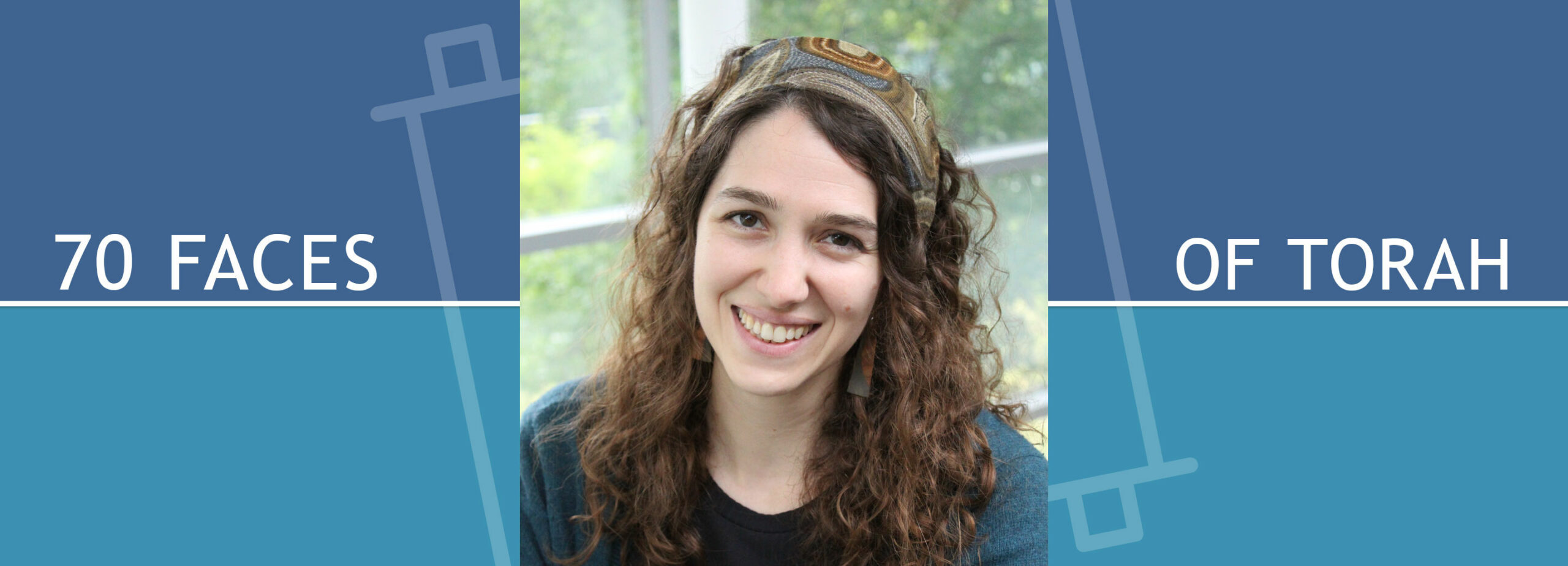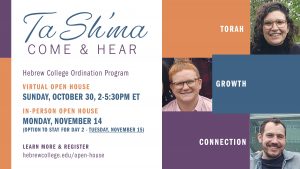Deuteronomy Using Your Name

Parashat Ki Tavo (Deuteronomy 26:1-29:8)
“What’s in a name?” bemoans Shakespeare’s lovesick Juliet. “A rose by any other name would smell as sweet.” This may be true for a rose, but for people, there is often a whole lot in a name. Ask anyone who has undergone a name change or been called a name they don’t want: in the context of a human life, names matter. Among other things, what we call each other signifies who we are to each other. In other words, names hold relationships; they help us understand, and give expression to, the ways we are connected to one another.
Because relationships are dynamic, the names we call each other also shift and change. A clinician might be “Dr. Cohen” at the hospital, just plain “Sarah” when out for coffee with a friend, and “mom” at the dinner table. A couple might call each other by their given names in public, then switch to more private endearments when alone together.
It seems our High Holiday liturgy is particularly sensitive to this dynamic in the context of prayer. What, in this season, should we call the Divine? What shall we name the One to whom we direct our prayers, our deepest hopes, desires and regrets? How shall we express the relationship between us at this particular moment in time?
The piyyut Anu Ameicha, a refrain throughout Rosh Hashanah and Yom Kippur, powerfully captures this yearning to find the right words to name the Divine-human relationship:
Anu ameicha v’ata Elokeinu / We are your people, and you are our God
Anu vaneicha v’ata Avinu / We are your children, and you are our Father…
Anu karmecha, v’ata Notreinu / We are your vineyard, and you are our Tender
Anu p’alecha, v’ata Yotzreinu / We are your work, and you are our Maker…
Each succinct line brings with it an avalanche of images. In some communities, this poem is chanted at a fast tempo, gaining in volume and momentum as the verses progress; almost as if we are rolling through a laundry list of metaphors, none of which feels quite right, until we finally slow and land on a final set of names: anu ma’amirecha, v’ata ma’amireinu.
Contemporary Machzorim run an astonishing range of translations for ma’amirecha and ma’amireinu: “we are Your designated, and You are our Designated” (Artscroll); “we are Thy worshipers, and Thou art our exalting One” (Birnbaum); “we are Your faithful, and You are our Source of faith” (Kol Haneshama); “we give You our word, and You give us Yours” (Koren).
The mystery around these words is not new: it goes all the way back to this week’s parashah, Ki Tavo. The root of מאמיר / ma’amir is אמר—a root we usually associate, in Hebrew, with the act of speaking. But it appears in our parashah (Deut 26:17-18) in an unusual grammatical form, deployed nowhere else for this verb in the Torah. Moses proclaims to the people:
אֶת־ה’ הֶאֱמַרְתָּ הַיּוֹם לִהְיוֹת לְךָ לֵאלֹקִים
וְלָלֶכֶת בִּדְרָכָיו וְלִשְׁמֹר חֻקָּיו וּמִצְוֹתָיו וּמִשְׁפָּטָיו וְלִשְׁמֹעַ בְּקֹלוֹ׃
וַה’ הֶאֱמִירְךָ הַיּוֹם לִהְיוֹת לוֹ לְעַם סְגֻלָּה כַּאֲשֶׁר דִּבֶּר־לָךְ וְלִשְׁמֹר כָּל־מִצְוֹתָיו׃
You have [he’emarta] God today to be your God, to walk in God’s ways and to keep God’s laws and statutes and to hear God’s voice,
And God has [he’emircha] you today, to be, as promised, God’s treasured nation who shall keep all of God’s commandments.
What exactly are the people and God doing to each other in this moment? Classical commentators such as the Ibn Ezra as well as later scholars note connotations of raising up, or exalting or glorifying. Targum Onkelos, the ancient Aramaic translation of the Bible, renders חטבת / hatvat, meaning to select or betroth oneself to, related to the Arabic for fall in love.
The Talmud in Berakhot (6a) weaves these linguistic threads into an exquisite image of the relationship between Israel and the Divine. Having established that God wraps tefillin daily (!), the Gemara asks:
The tefillin of the Master of the Universe—what is written upon them? [The verse] “Who is like your people Israel, one nation on the earth?” (I Chronicles 17:21)
But is the Holy Blessed One truly elevated through the praises of Israel? Yes, as it is written: “You have exalted [he’emarta] God today.” And it is written, “And God has elevated you [he’emarta] today.” The Holy Blessed One said to Israel: You have made me the singular object of your love in the world, as it is written, “Hear O Israel, the Lord our God, the Lord is One,” (Deut 6:4) and I will make you the singular object of my love in the world, as it is written, “And who is like your people Israel, one nation on the earth?” (I Chronicles 17:21)
The name ma’amir—the only name that we give to God and God gives, as a mirror image, right back to us—conjures for our Sages an image of a reciprocal devotional practice, a daily declaration of love, of God and the community of Israel choosing each other. Far from formal titles that broadcast boundaries and distance, this label is equalizing, familiar, intimate. The layers of the word ma’amir—declaration, betrothal, loving, raising, exalting—bespeak what it does to us, and what we do to others, when we see and love them, when we name and celebrate what makes them precious to us: we uplift them, and they in turn raise us with them.
This week, as we draw closer to a new beginning, may we take to heart the words of our teacher Moses—et Hashem he’emarta hayom / you have raised-up-in-love the Divine today. May we remember that a committed Jewish life begins with a daily choice to accept and reflect Divine love. And in this season, may we find moments of intimate connection that we can call choosing, loving, and being loved; may we renew our commitment to lift each other up, and may we in turn be lifted.
Please contact the author if you’d like to share any feedback. R’ Shani Rosenbaum teaches rabbinic and halakhic literature at the Rabbinical School of Hebrew College.


